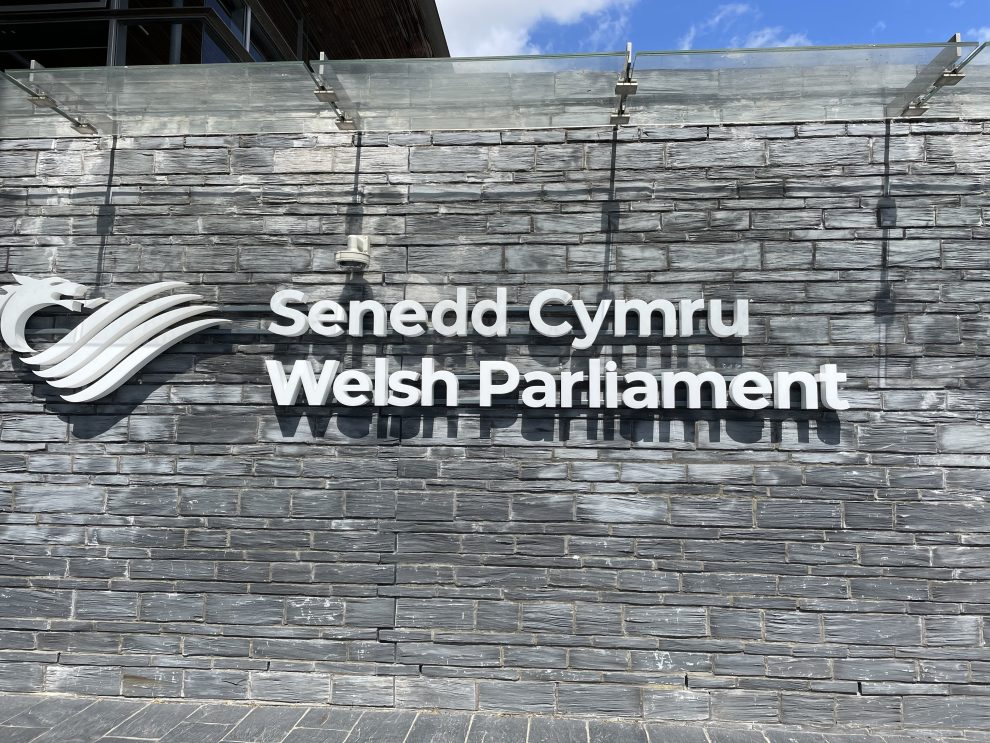Politics
Brexit: not the least surprised

IF it was a tiger that went in the tank, as enthusiastically advocated by Prime Minister Johnson, it was a paper tiger. And all that does is clog up the filters and prevent the engine running. Furthermore, cleaning out the debris is a difficult and expensive job.
But that’s always the same with Johnson. He bounces onto the stage, utters some singularly inappropriate phrases, prattles incoherently for a while and then buggers off to let everyone else – anyone else – sort out the details that he can’t be bothered with (which is all of them).
And so it has come to pass that those “future relationship” talks, even with the “tiger in their tank”, have got absolutely nowhere and have broken up early over “serious” disagreements, with Michel Barnier complaining of “lack of respect and engagement by the UK”.
“Our goal was to get negotiations successfully and quickly on a trajectory to reach an agreement”, Barnier said in a statement. “However, after four days of discussions, serious divergences remain”.
That, of course, comes as absolutely no surprise. If there is any surprise to be had, it’s that the talks lasted as long as four days. There have never been any indications that Johnson has been serious about these talks, so the likelihood was always that they were going to break up in disarray.
NO NEW PROPOSALS FROM UK
Barnier says that Brussels had “listened carefully” to Johnson when he did his “thing” about tigers, and made vacuous noises about wanting a “political agreement” over the summer. And now that the talks have broken down, the recriminations flow, to the point where not much sense can be made of them.
We learn from Barnier, for instance, that the EU has recognised British “red lines”. These include the role of the ECJ, the refusal to be bound by EU law, and a fisheries agreement that recognises the UK’s sovereignty. It has thus hinted at several concessions, across the board.
This is matched by a complaint that the EU’s willingness to be flexible on its initial demands in light of the British positions had not been met with similar understanding from Downing Street over Brussels’ red lines. Downing Street needed to “reciprocate with new proposals”, the EU says.
David Frost, on the other hand, seems to be in the market for extruded verbal material, saying virtually nothing at some length. His big thing is that the British side still wants “an early understanding of the principles underlying an agreement”, which he hopes can be secured by the end of July.
SHIFTING THE BLAME
Oddly enough, the normally astute Denis Staunton for the Irish Times seems to think that the abrupt end to these talks was “not only surprising but perplexing”.
Perplexing it may be – nothing to do with Johnson is ever straightforward – but surprising it never was. The writing has been on the wall so long it is starting to fade.
Staunton, however, takes some comfort from “the language on both sides”. He says it was “restrained” and Frost’s had none of the belligerence that often characterises his rhetoric towards Brussels.
The fact that Barnier chose not to give a press conference, he says, was seen by some as another happy augury but Staunton says it wasn’t. Simply, he was deferring to Angela Merkel and Ursula von der Leyen, who gave a joint press conference later.
However, Barnier is also said to have accused British trade negotiators of “a lack of respect” and when von der Leyen and the German Chancellor got going, Merkel warned the EU Member States that they needed to be prepared for a no-deal TransEnd.
Why the tone of the two parties should thus give rise to such optimism isn’t immediately apparent. At this stage, with little to be gained either way – with only a very limited trade deal on the stocks, one of the greater concerns must be to establish a firm base for blame avoidance.
Barnier, in particular, will want to tell his domestic audience that the EU has gone the extra mile, not least because it then clears the way for the EU to do what it always does – screw the Brits.
A WEAK, UNLOVELY THING
Team Johnson, from the look of it, is away with the fairies anyway. And with Frost apparently trotting off to a new job at the end of the month (or not), he has good reasons for not starting a spat that he can’t finish.
But what makes this more than a little bit redundant – and so utterly tedious – is that we’re almost down to the level of two bald men fighting over a comb. Any deal done – if there is one done – must be measured not by what it includes but what is left out. So very little can be agreed in the time that anything delivered will be a weak, unlovely thing.
But the real giveaway is that the UK has yet to set out plans for how it wants an agreement to work, on areas as diverse its own state aid regime, to a fully functioning fishing policy.
Throughout the entire Brexit period the UK stance has been to let the EU make the running, and then knock down what it offers. There is only so much of that one can take before even the most patient of negotiators begins to feel they are being taken for mugs.
JOHNSON GOING THROUGH THE MOTIONS
Yet, on fishing, in particular, Barnier is saying that there needs to be a “sustainable and long-term solution” on fisheries, taking into account the needs of European fishermen for certainty over their livelihoods. An effective all-encompassing dispute settlement mechanism is also necessary, to ensure both sides stick to their obligations.
Here, the issue is – as it is elsewhere – that the British government doesn’t have the first idea of how to manage a modern fishery. The Ministry of Agriculture, Fisheries and Food (MAFF) has given way to Defra, which doesn’t even have “fisheries” in its title. Any expertise there was in the department has long gone.
Something about which we haven’t been hearing much of late is also of importance – governance. A little while back, this was of some importance, with the EU wanting a single, over-arching agreement, with standard rules and institutions, and a common dispute procedure.
Now we don’t seem to hear so much of this, but that doesn’t mean it is no longer important. Most likely, Barnier has given up on trying to get any sense out of Team Johnson and is just going through the motions.
THE EU CAN WAIT
The thing for sure here is that he doesn’t need to throw his toys out of the pram. All he has to do is wait until after December 31, and watch the Brits having hissy-fits when they discover what being outside the internal market really means.
In time – and perhaps when there is a different administration – Barnier (or his successor) can come back and we can all start talking again. Then perhaps the UK will have people who are prepared to behave like adults and look anew at what sort of relationship we need with our closest neighbours.
Until then, we are going to see a lot of this sort of ritual dance. It may die down during the holiday period and pick up the tempo as the autumn turns to winter. And there may be a last flurry of activity in the dying days of December, although that will be for show. Any agreement has to be ratified, so a last-minute deal is not on the cards.
Meanwhile, there will be more talks next week. These will be in London, another session of face-to-face meetings. I don’t expect we’ll get much more out of them than we did this week. If we do, then that really will be a surprise.
This article is reproduced by kind permission of Dr Richard North from his blog http://eureferendum.com/.
Dr Richard North is a veteran supported of Britain’s exit from the EU and co-author, with Christopher Booker, of ‘The Great Deception: The Definitive History of the EU’ and before that co-author of two other books on EU-related matters.
He was group research director of the EDD group in the European Parliament and has written numerous pamphlets and articles on EU matters.
News
Too many children in Wales living in poverty – Lib Dems want action

THIS week in the Senedd, the Welsh Liberal Democrats renewed their demands for the implementation of child poverty targets.
According to a report from the Bevan foundation, 29% of children living in Wales are currently experiencing poverty (an estimated 190,000 children).
The same report highlighted that the largest percentage of children living in poverty are from working households or in couple households.
The Welsh Lib Dems are now renewing calls for the Welsh Government to create a set of targets for reducing child poverty, which the party argues will allow for more accountability.
The party has previously called for the implementation of targets, citing recommendations from the Calling Time on Child Poverty Report published in November last year.
Commenting, the Leader of the Welsh Liberal Democrats Jane Dodds MS said: “The latest statistics on childhood poverty in Wales paints a very distressing image of families across the country struggling to make ends meet.
Over the course of the last six years, the proportion of children in poverty has skyrocketed. Fuelled by worsening economic conditions and a complete lack of action from both governments in Westminster and Cardiff Bay.
We cannot act complacent about these figures nor accept the clear lack of progress in fighting child poverty, behind each statistic is a child that the state has failed.
It remains painfully clear that the Welsh Government is failing to make any meaningful progress in this fight, which is why they must follow through with the implementation of clear set targets that will allow for further accountability.
We as a party have continuously called for the creation of these targets and we will not be silenced. For the sake of future generations we urge the Welsh Government to listen.”
Education
Conservative calls for academies and free schools rejected by Senedd

THE SENEDD has rejected calls to introduce free schools and academies after a report found major challenges in Wales’ education system.
Tom Giffard led a Conservative debate on educational attainment, warning that Wales is consistently at the bottom of UK-wide league tables.
The party’s new shadow education secretary pointed to an Institute for Fiscal Studies (IFS) report on education in Wales which found low outcomes and high levels of inequality.
Mr Giffard told the Senedd the IFS report highlights the pitfalls of the Welsh Government putting all its eggs in the basket of a skills-based approach.
Criticising a failure to measure skills inequalities and pupil progress, he stressed that Wales’ lower performance is due to policy and approach rather than funding or the pandemic.
He said: “It seems the Welsh Government relies on Pisa results to tell the story but then, when those same results are all too disappointing, they are dismissed in equal measure.”
Mr Giffard, who previously worked in a primary school, said declines in Pisa results can be observed in almost every country that has adopted a skills-based approach.
Raising concerns about disappointing Pisa results, the South Wales West MS pointed out that Wales saw the lowest scores in the UK for every subject.
Heledd Fychan, Plaid Cymru’s shadow education secretary, warned that Wales’ schools are understaffed and facing difficult decisions due to budgets being at breaking point.
She criticised implementation of the Welsh Government’s additional learning needs (ALN) reforms, saying schools cannot realise the aims without the budget to bring them to life.
Ms Fychan said Plaid Cymru agreed with much of the Tory motion but her party would not support calls for free schools and academies.
Sam Rowlands described the IFS report as damning, warning that the Welsh Government’s education reforms have been disastrous and have widened inequality.
The Tory MS claimed the reforms are systematically holding back disadvantaged children, saying: “The most remarkable fact is that the performance of disadvantaged children in England is either above or similar to the average for all children in Wales.”
Mr Rowlands added: “The poorest in England’s schools are doing the same or better than the Welsh average, thanks to ambition, the academies and free schools.”
Samuel Kurtz, a fellow Tory, said free schools and academies have driven up standards in England as he argued a Wales roll-out provides an opportunity to improve outcomes.
James Evans, the Conservative MS for Brecon and Radnorshire, highlighted the party’s pledge to get 5,000 more teachers into Wales’ classrooms.
Buffy Williams, the newly elected chair of the Senedd’s education committee, said Wales is undergoing a profound transformation propelled by ALN and curriculum reforms.
The Labour MS for Rhondda stressed the importance of listening to teachers and allowing ample time for the reforms to take root in classrooms across Wales.
Altaf Hussain recounted a conversation he had this week with a headteacher at one of the largest schools in his South Wales West region.
The Conservative said: “The major improvements they have been delivering to attainment and addressing behavioural issues are all at risk because of cuts to funding.
“Vital work undertaken to improve the lives of young people with additional needs could be halted because they cannot afford to continue employing the support workers.”
Lynne Neagle recognised the scale and seriousness of work still ahead to improve Wales’ education system, stressing: “I am not, in any way, complacent about that task.”
Wales’ newly appointed education secretary, who takes over from Jeremy Miles, said sustained improvement in attainment will be among her top priorities.
She told the chamber: “My early focus has been to listen closely to schools and where it is clear that schools seek more scaffolding.”
Ms Neagle said the Welsh Government will work with trade unions and employers to reduce workload and eliminate unnecessary red tape.
The Conservative motion was voted down, 14-35, following the debate on April 24. The motion as amended by the Welsh Government was agreed, 26-23.
Climate
£1m turbine application to be decided by all councillors at County Hall

A TWICE-BACKED £1m scheme for a “20-storey-high” wind turbine at a Pembrokeshire mansion will have to be decided by all councillors.
Mr and Mrs Glen Peters of Western Solar Ltd are seeking permission for a single turbine on land near the Grade II-listed Rhosygilwen Mansion, which includes an arts and functions building known as Neuaddydderwen.
Members of the April meeting of Pembrokeshire County Council’s planning committee were recommended to refuse the scheme, despite backing it at their March meeting.
This backing meant the application returned to the April meeting for ratification after a ‘cooling off’ period; the application having been deferred at the January meeting pending a site visit.
It was initially recommended for refusal in January for several reasons, including potential harm to the setting of the Grade-II-listed house and grounds, and fears of threats to the safe operation of West Wales Airport at Aberporth in neighbouring Ceredigion, some 9.5 kilometres away.
The last concern was later withdrawn.
In papers ahead of the April meeting, officers, again recommending refusal, have said the scheme “would not protect or enhance the setting [of Rhosygilwen] but rather would result in significant harm to this interest of acknowledged importance”.
They have also warned any backing of the scheme against policy recommendations could set a precedent for similar developments.
-

 News6 days ago
News6 days agoPolice issue update on the search for Luke, missing from Pembroke Dock
-

 News1 day ago
News1 day agoPolice and air ambulances at ‘serious incident’ at West Wales school
-

 Sport7 days ago
Sport7 days agoHerbrandston clinch promotion to Division One
-

 News5 days ago
News5 days ago20mph U-turn: Some roads will return to 30mph following public outcry
-

 Community5 days ago
Community5 days agoMiracle pup finds her forever home after heart-wrenching journey
-

 Community2 days ago
Community2 days agoCounty Hall to offer space for community banking
-

 Crime1 day ago
Crime1 day agoPembrokeshire pensioner accused of 17 sexual offences against children
-

 Crime3 days ago
Crime3 days agoBrian Davis: Wanted on suspicion of commercial burglary

























